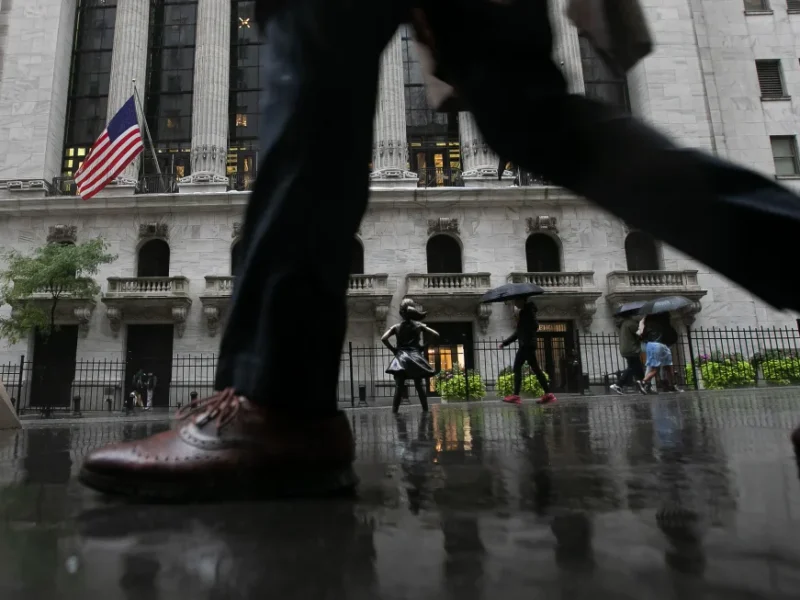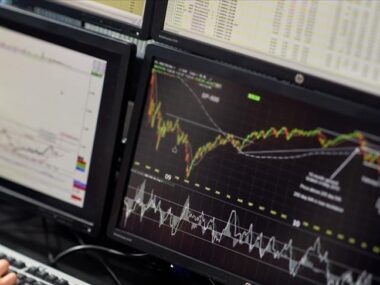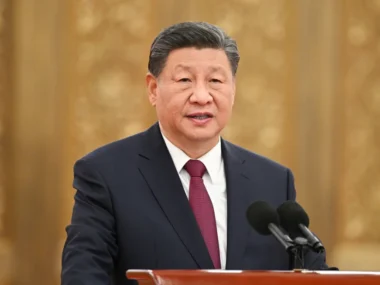The United States is surpassing expectations in its economic growth, with soaring markets and inflation approaching the Federal Reserve’s 2% target. This suggests the possibility of a smooth economic transition, avoiding a recession.
On the other hand, China’s economy seems to be facing difficulties. Its markets are stuck in a prolonged downturn, consumer confidence is declining, growth is slowing, and its population is shrinking. The recent court order to wind up Evergrande adds uncertainty to China’s real estate crisis.
So, what does this mean for the relationship between the world’s two largest economies?
Before the Bell interviewed Eswar Prasad, a trade policy professor at Cornell University and former head of the International Monetary Fund’s China division.
Before the Bell: Is it accurate to say that the United States is outpacing China in the competition for economic dominance?
Eswar Prasad: The United States has solidified its position as the primary driver of global economic growth, particularly noteworthy as other parts of the world struggle to sustain decent growth.
Just last year, the situation seemed quite the opposite, with concerns about a possible U.S. recession while China’s economy appeared robust. What caused this shift?
It is striking to observe the U.S. economy flourishing while the Chinese economy faces challenges and slips into deflation. This contrast primarily results from the inherent resilience of the U.S. economy, while China grapples with various short-term and long-term issues. These include a shrinking workforce, a troubled property market, and a loss of confidence among households and businesses in the government’s policies.
The strong performance of the U.S. economy and the slowing growth in China raise questions about the once widely assumed idea that China’s annual GDP would eventually surpass that of the U.S.
How does this dynamic impact the increasing tensions between the United States and China?
China’s struggling economy and uncertain growth prospects have undoubtedly heightened the Chinese government’s willingness to reduce trade tensions with the United States. These tensions are compounding the existing uncertainty surrounding economic growth and negatively impacting business confidence.
Both the U.S. and Chinese governments appear eager to prevent any further escalation of trade conflicts, especially considering the likelihood of increasingly intense anti-China rhetoric in the United States as the election season approaches.
What other aspects should investors keep in mind when they delve into information about the Chinese economy?
In response to its concerns about the weak economy and declining stock prices, the Chinese government has ramped up government spending, lowered interest rates, and implemented measures to bolster the property and stock markets.
Nevertheless, these actions have had limited effectiveness on their own, as they have not effectively addressed the underlying issue of weak confidence among households and businesses. This lack of confidence is a key obstacle that hampers household consumption and private investment, which are critical for sustainable economic growth.
JPMorgan Chase’s succession plan
Jamie Dimon is a widely recognized and closely followed CEO on a global scale. Throughout his leadership at JPMorgan Chase, he has become synonymous with the largest U.S. bank based on assets.
However, it’s clear that Dimon cannot lead indefinitely, and as he approaches his 68th birthday, the issue of who will succeed him has become increasingly significant.
Recently, JPMorgan announced significant changes to its top leadership, potentially in an effort to address this crucial question: Who will take over?
The bank has named Marianne Lake as the sole CEO of the consumer division, a role that was previously shared by both Lake and Jennifer Piepszak, as per a recent filing.
Meanwhile, Jennifer Piepszak will lead the newly merged commercial and investment bank alongside her co-CEO, Troy Rohrbaugh, who previously served as the head of trading and securities services at the bank.
Jamie Dimon has indicated his contentment in his current role for the time being, and this sentiment is understandable. Dimon has overseen the development of a banking powerhouse at JPMorgan Chase, and his counsel is sought after by presidents, prime ministers, and central bankers.
Nevertheless, he has not completely ruled out the possibility of a future in politics. Last spring, he mentioned to Bloomberg, “I love my country, and maybe one day I’ll serve my country in one capacity or another.”
Newly disclosed documents reveal that the NSA (National Security Agency) purchases internet data belonging to Americans.
Advertisers’ extensive tracking of our online activities is well-known, but a troubling revelation has now come to light, indicating that our search history is even more widely accessed than previously thought.
The National Security Agency (NSA) has been acquiring Americans’ web browsing data from commercial data brokers without the need for warrants, according to documents disclosed by intelligence officials and made public by U.S. Senator Ron Wyden. These purchases encompass information about the websites people visit and the applications they use.
This disclosure underscores the ongoing practice of government agencies obtaining sensitive information about American citizens from commercial marketplaces, bypassing the usual requirement for a court order.
These revelations coincide with growing concerns that foreign governments are engaging in similar practices. CNN recently reported that the Biden administration is preparing an executive order aimed at limiting foreign acquisitions of personal data belonging to U.S. citizens.











